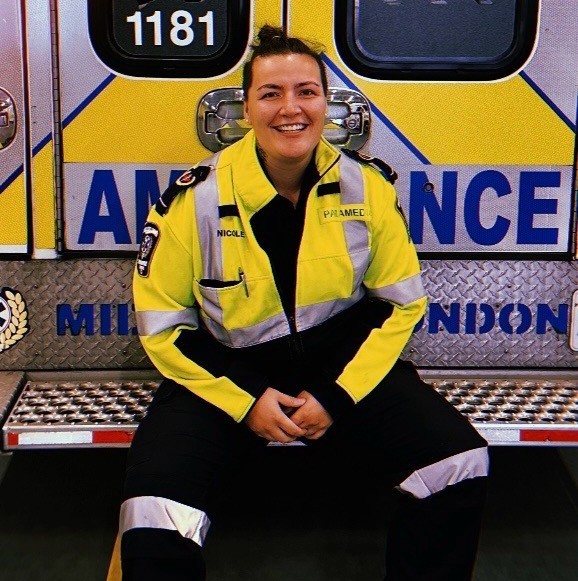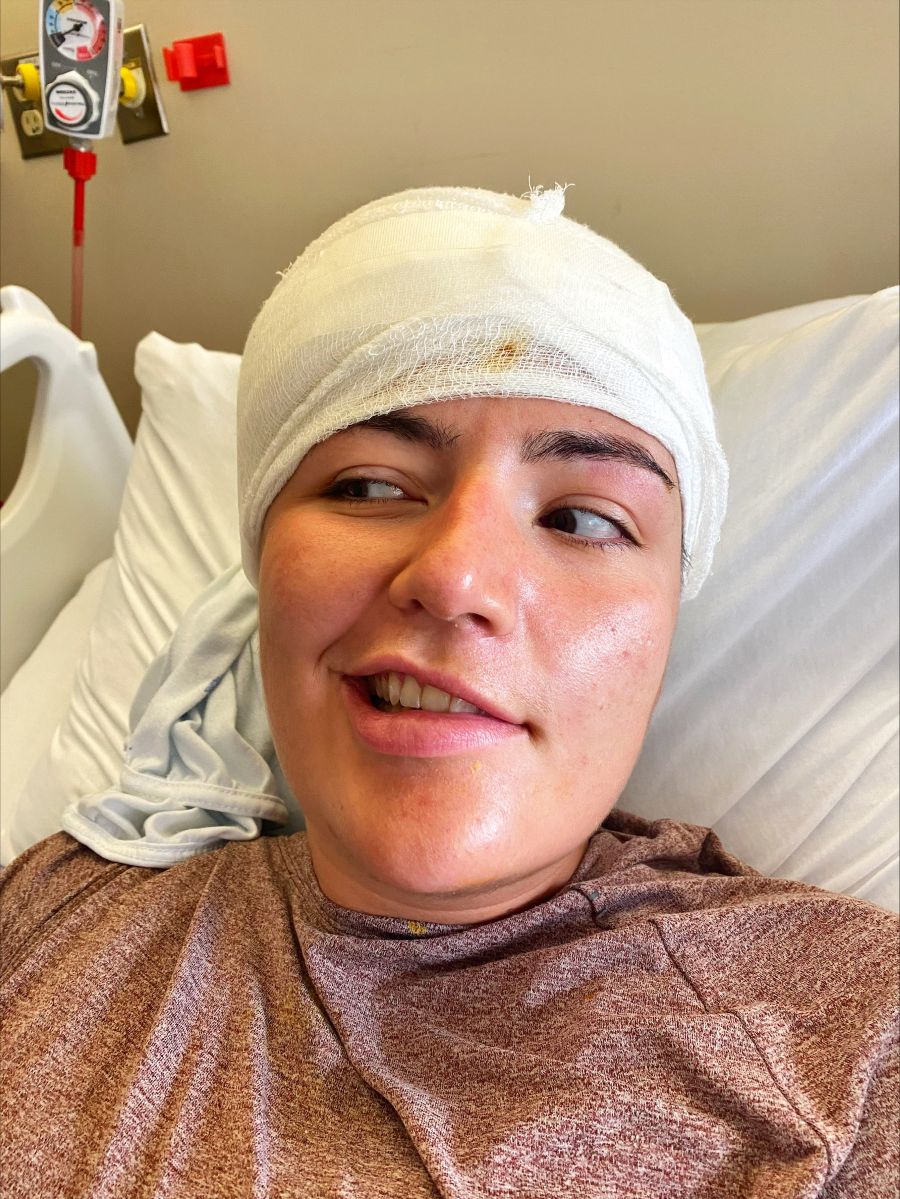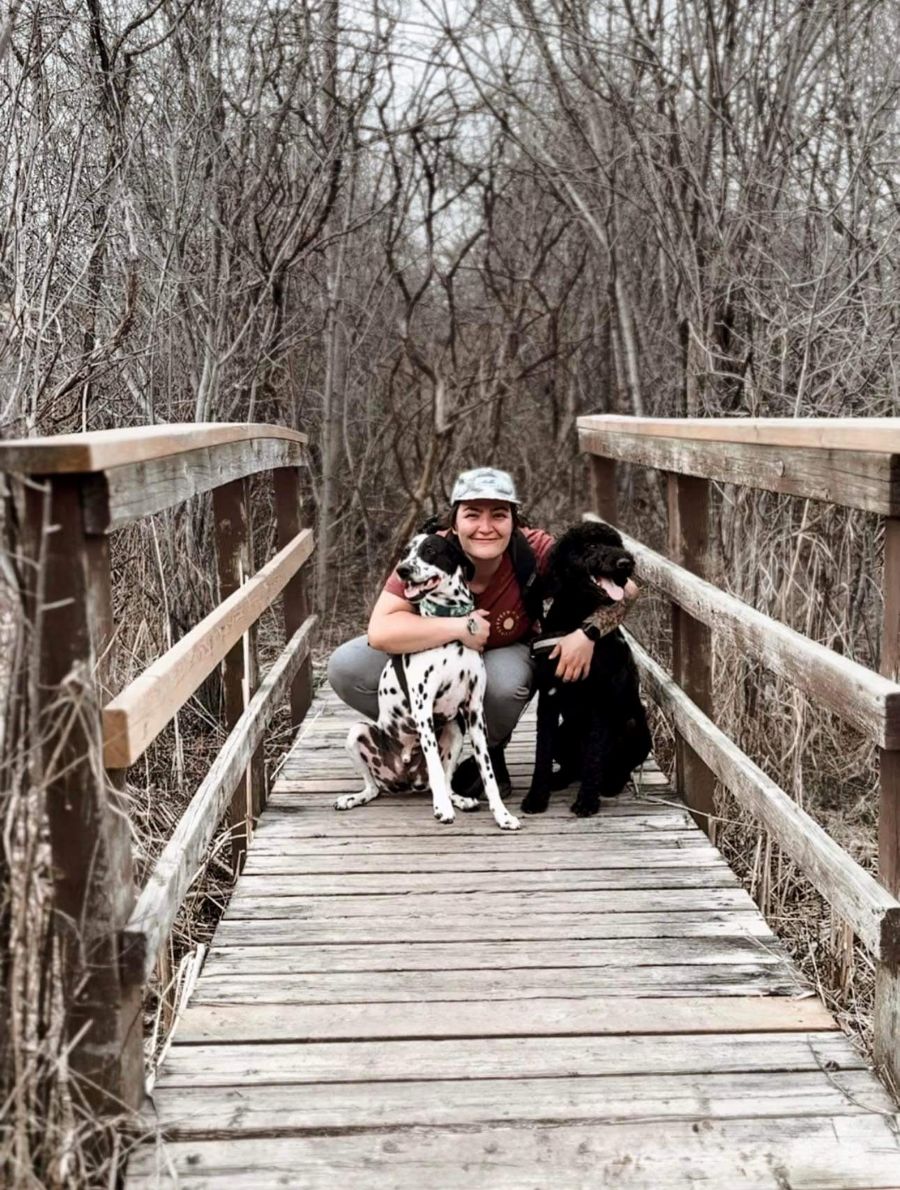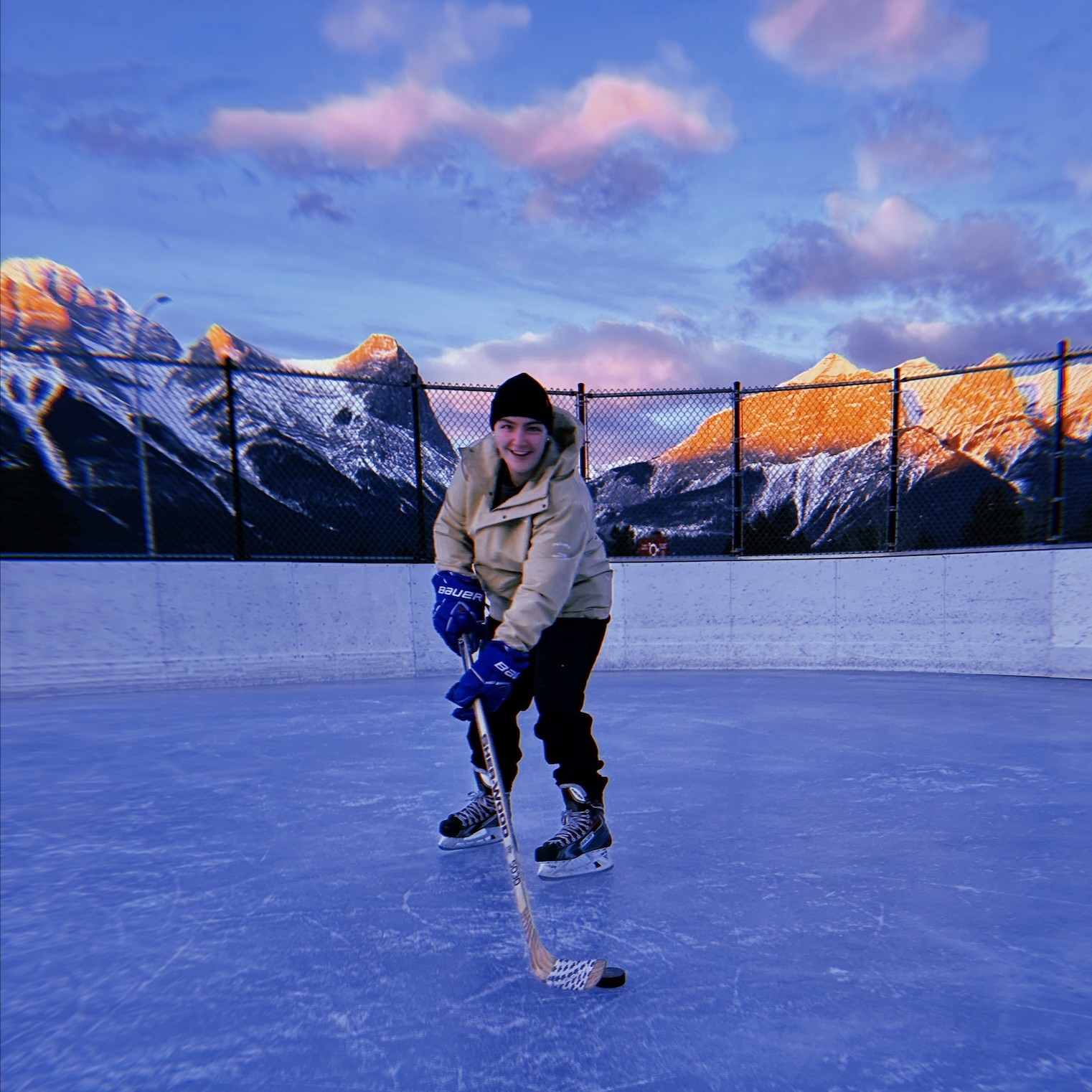
Nicole’s journey to reclaim her life
Nicole Atkinson has been active all her life, taking part in activities like hiking, snowboarding, lacrosse and hockey. In fact, she’s fresh off the ice from a hockey game when she takes the call to share her story—a testament to how far she’s come since that day she suffered a seizure in August 2022.
Nicole was a 27-year-old paramedic, out for one of her regular runs, when she experienced her seizure. Living in St. Thomas, Ont., at the time, she was rushed to her local hospital.
A CT scan revealed a brain tumour, which led to Nicole being transferred to a nearby hospital in London, Ont. for further treatment.
“I think it was worse being a paramedic, because I kind of knew everything that was going on,” Nicole says.
From paramedic to patient
 She was prepped for surgery the next morning but ended up being sent home due to a lack of spots in the intensive care unit. A few days later, Nicole underwent a craniotomy that removed 98 per cent of her astrocytoma tumour.
She was prepped for surgery the next morning but ended up being sent home due to a lack of spots in the intensive care unit. A few days later, Nicole underwent a craniotomy that removed 98 per cent of her astrocytoma tumour.
“Within a week, I’d gone from saving lives to having my life almost taken from me.”
While the surgery was successful, Nicole acquired a brain injury as a result.
“I had left-sided paralysis,” she recalls. “I couldn’t speak, I couldn’t swallow, I couldn’t talk. My neurocognitive abilities had really decreased.”
She spent four days recovering from her surgery in the hospital, before beginning her long-term recovery process.
Getting back to basics
Nicole’s mom, Heather, temporarily moved in with her to help her rehabilitate at home until she was able to get into a rehab hospital two months later.
“I had to relearn basic skills, like eating, speaking, and walking,” Nicole says.
 Her dad, Rob, was in charge of errands and cooking, with Nicole fondly remembering his efforts to figure out “what foods blend well” together. He was also on hand to look after her beloved—and energetic—dogs, Hank and Doug.
Her dad, Rob, was in charge of errands and cooking, with Nicole fondly remembering his efforts to figure out “what foods blend well” together. He was also on hand to look after her beloved—and energetic—dogs, Hank and Doug.
“My dad luckily loves dogs, so he was on dog duty while my mom took care of me,” Nicole says.
Along with helping Nicole adapt to life after surgery, her parents drove her to appointments, filled out the paperwork needed for her to maintain an income, and helped her get back on her feet—quite literally.
Step by step, Nicole found her way back to herself.
“After regaining those foundational abilities, I worked to further refine my motor skills and cognitive processing speed, with the goal of returning to work as a paramedic and my hobbies,” she says. “In less than two years, I’ve achieved that goal—going back to work, ticking off bucket-list trips, and getting back into physical sports.”
Gaining a new perspective
Her experience has helped her relate to the people she helps, while giving her a new appreciation for the opportunities in life.
“It’s been great to be back with my co-workers, making a difference again,” she says. “I’ve never told a patient that I have brain cancer, but I feel like I can relate to them on a different level. It’s made me a better paramedic.”
She’s also spent time travelling, visiting New York with her mom, Florida with a friend, and Alberta, to play hockey in the mountains with some other good friends.
“Before, I was more money conscious,” Nicole says. “I would make sure I had this safety fund in case something happens. But, experiencing new things and having once-in-a-lifetime adventures are something money can’t buy.”
Finding normalcy
 She’s still working on her recovery, going for MRIs every three months to monitor her tumour’s growth. So far, it’s slow growing, which means intensive treatment has not been recommended. She has, however, been involved in a trial for an oral chemotherapy drug, vorasidenib, and is hoping she can continue seeing positive results.
She’s still working on her recovery, going for MRIs every three months to monitor her tumour’s growth. So far, it’s slow growing, which means intensive treatment has not been recommended. She has, however, been involved in a trial for an oral chemotherapy drug, vorasidenib, and is hoping she can continue seeing positive results.
“I’m deeply grateful for the support of numerous organizations, the groundbreaking medications and the care that helps me find some normalcy in my journey,” Nicole says.
She has made great strides in her recovery, though the weakness in the left side of her face and her lethargy persists.
“I have to work three times harder than most people to do the average thing,” Nicole says.
Despite having to work harder, Nicole has been making efforts to get back to the life she loves.
“I just want people to know that if you persevere—get help, go to therapy, use your resources—you can get back to some kind of normalcy,” she says. “It might not be the normal that you want, but you can make the best of it.”
